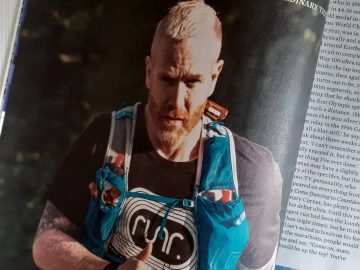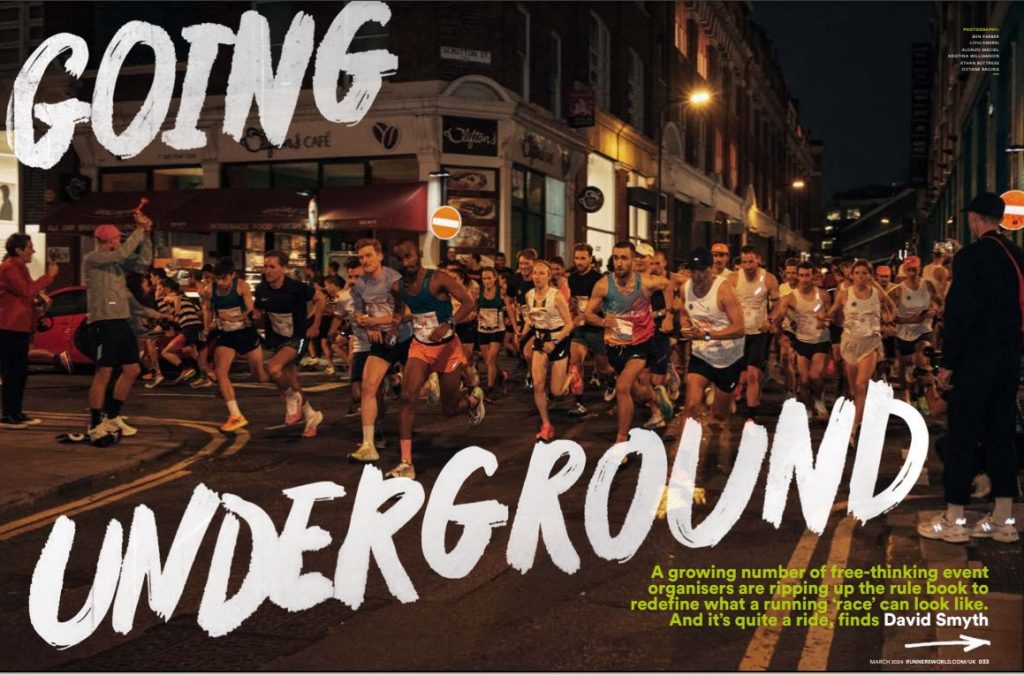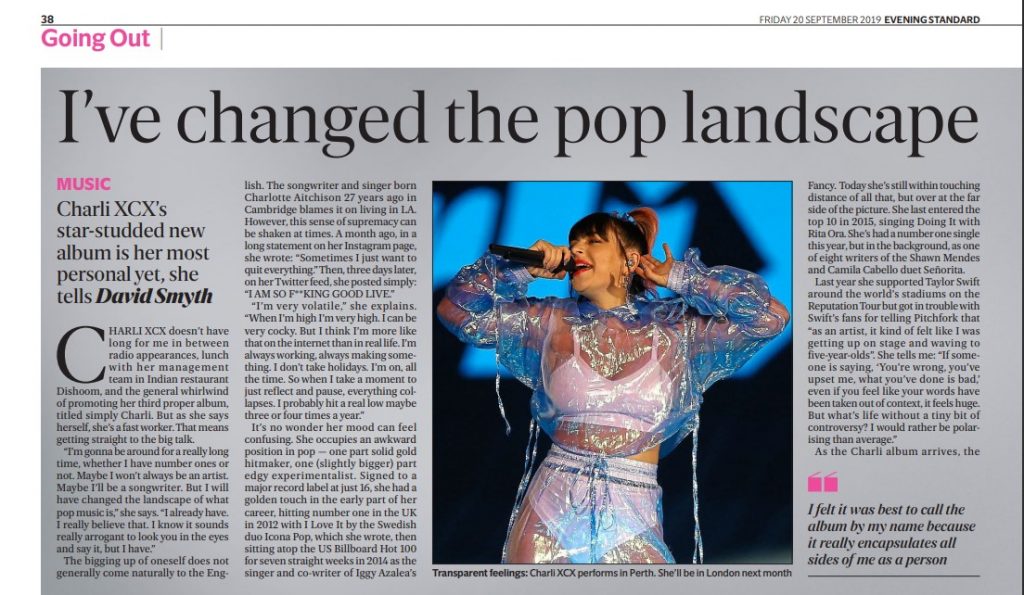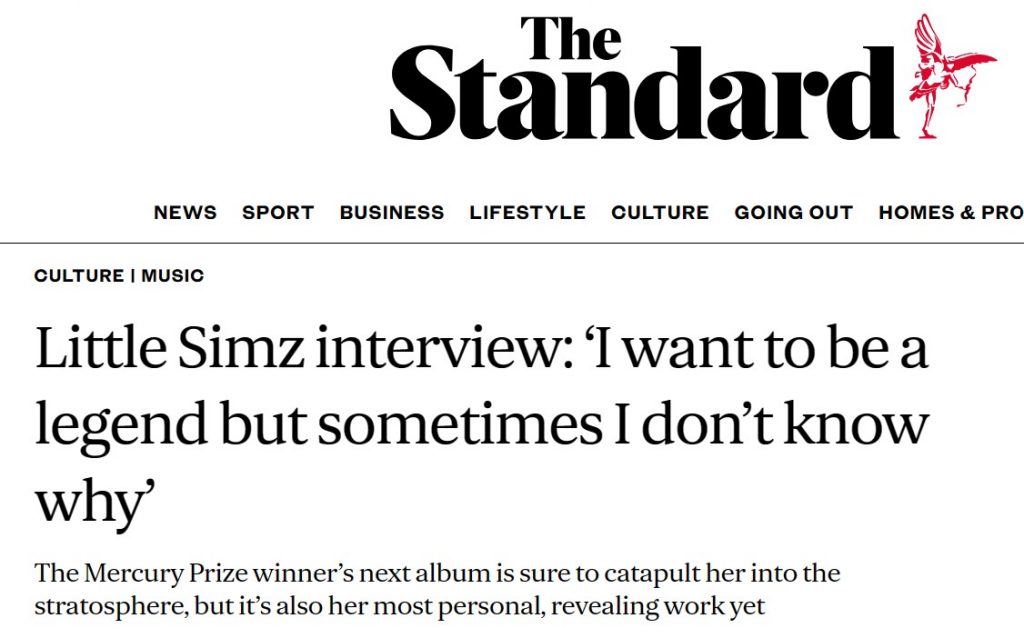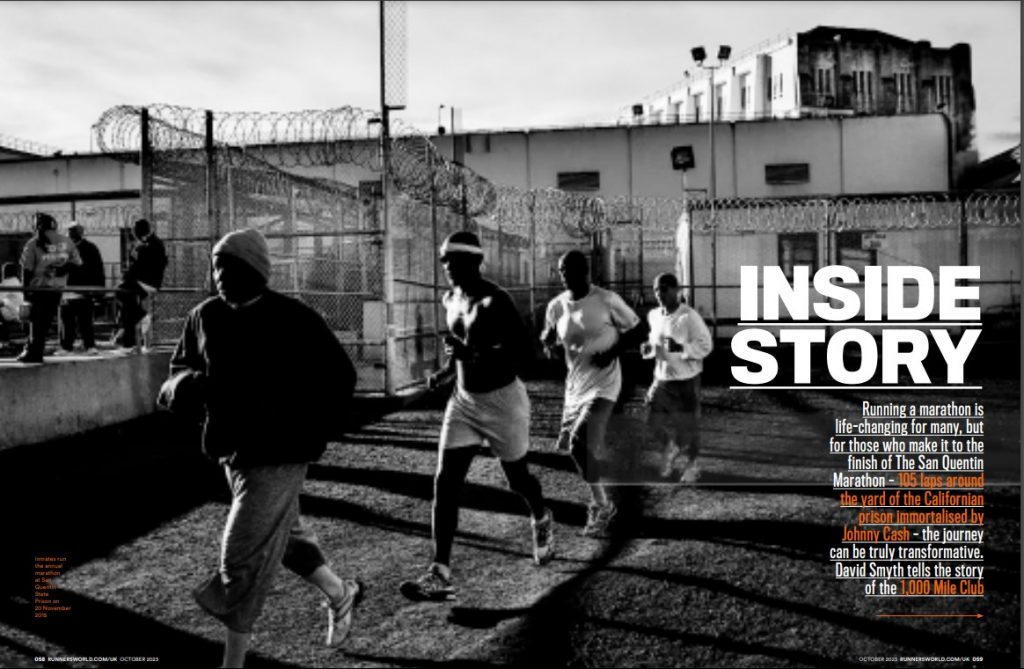You might think it would be hard for women to get involved with Movember, given that the best known way to raise money for the charity involves getting sponsored to grow a moustache. But although its focus is on men’s health – with campaigns centred on prostate and testicular cancer and male suicide prevention – of course those things also affect women in the vicinity in other ways.
Katy Martins was 12 in 2008 when she lost her dad Jim to suicide. In 2022 she joined other “Mo sisters” – young women with similar experiences – to run both the London Landmarks Half and the London Marathon in aid of Movember.
‘Until this year I’d never really met anyone in a similar position to me. It’s almost been taboo to talk about someone’s death if it was by suicide,’ she says. ‘With these women – some who’d lost their dads, some who’d lost a brother – as soon as I met them we had a level of understanding that you don’t really get from other people. We all had similar questions: why did this happen? Could I have done something differently? Could I have helped him to link up with more friends? Could I have been a better daughter? When I met the others, it was comforting to know that I wasn’t going crazy and that grief commonly presents itself in those ways.’
Katy had enjoyed running with her dad as a child. She has a photo of the pair of them after a fun run. She would sometimes do a short loop with him before he went for a long Sunday run around Richmond Park in west London. When preparing for the marathon, she did her longest training run in the same place. ‘When I’m running, a part of me feels like I’m with him.’
Running also helps her own mental health. ‘I’ve suffered quite significantly with depression, anxiety and bulimia over the years,’ she says. ‘If I haven’t been running for a week, I’ll know about it. My brain feels quite busy. The first 10 minutes are always the toughest, trying to find that flow, but then I get that feeling of a weight being lifted. I always come back feeling better than when I left. It’s the only thing that really works.’
Having the goal of her first ever marathon has made running an even bigger part of her life in the past year. It was a dream to do one with her dad as a young girl. They used to watch it on TV. ‘Doing the marathon was a very personal challenge and I’m so proud that I can say I’ve done it. I haven’t always had enough faith in myself. It’s been a way of taking down those demons that are often in your head telling you that you can’t do certain things.’
As public perceptions around mental health have become more sophisticated, it’s been easier for her to share her experiences more widely too, and be heard. When she first lost her dad, she didn’t receive enough understanding from those around her. Her school had no pastoral care in place. She was bullied by cruel classmates who found it easy to get a reaction by bringing up her tragedy. When she walked out of a session where students were asked to talk about what they were getting their dads for Fathers Day, she was excluded from school. And her town’s local newspaper wrote about her dad’s death with such insensitivity that her family fought to get the article pulled. ‘I feel like a lot of my childhood was robbed of me. But my mum did her absolute best to keep me afloat and I wouldn’t be here without her.’
So in today’s more thoughtful climate it doesn’t feel intrusive to ask her about her experiences. ‘I welcome opportunities to talk about it in the hope that it might help other people,’ she says. ‘We can speak about mental health in a more positive way. And I like being able to amplify the voice of my dad, because he obviously didn’t feel heard and that’s why what happened happened.’
She went on to complete a Master’s Degree in the Psychology of Mental Health, worked for the NHS and now works for Movember. She praises Movember’s ‘Conversations’ – an online tool to help people to find ways to talk to someone about their mental health – and the ‘ALEC’ model: ‘Ask, Listen, Encourage action, Check in.’ There’s also ‘Ahead of the Game’, a new programme to show adolescents in sport how to look out for their mental fitness as well as the physical.
It’s all great progress, though she also thinks that society still makes it harder for men to display vulnerability. ‘It’s not that being masculine is the problem, and the charity is not asking men to change the way they are, but it’s about being more open. You might have had a bad day and don’t want to come home and put that on your family. But it is possible to be a strong man and also speak about your feelings.’
The Samaritans or phone 116 123





